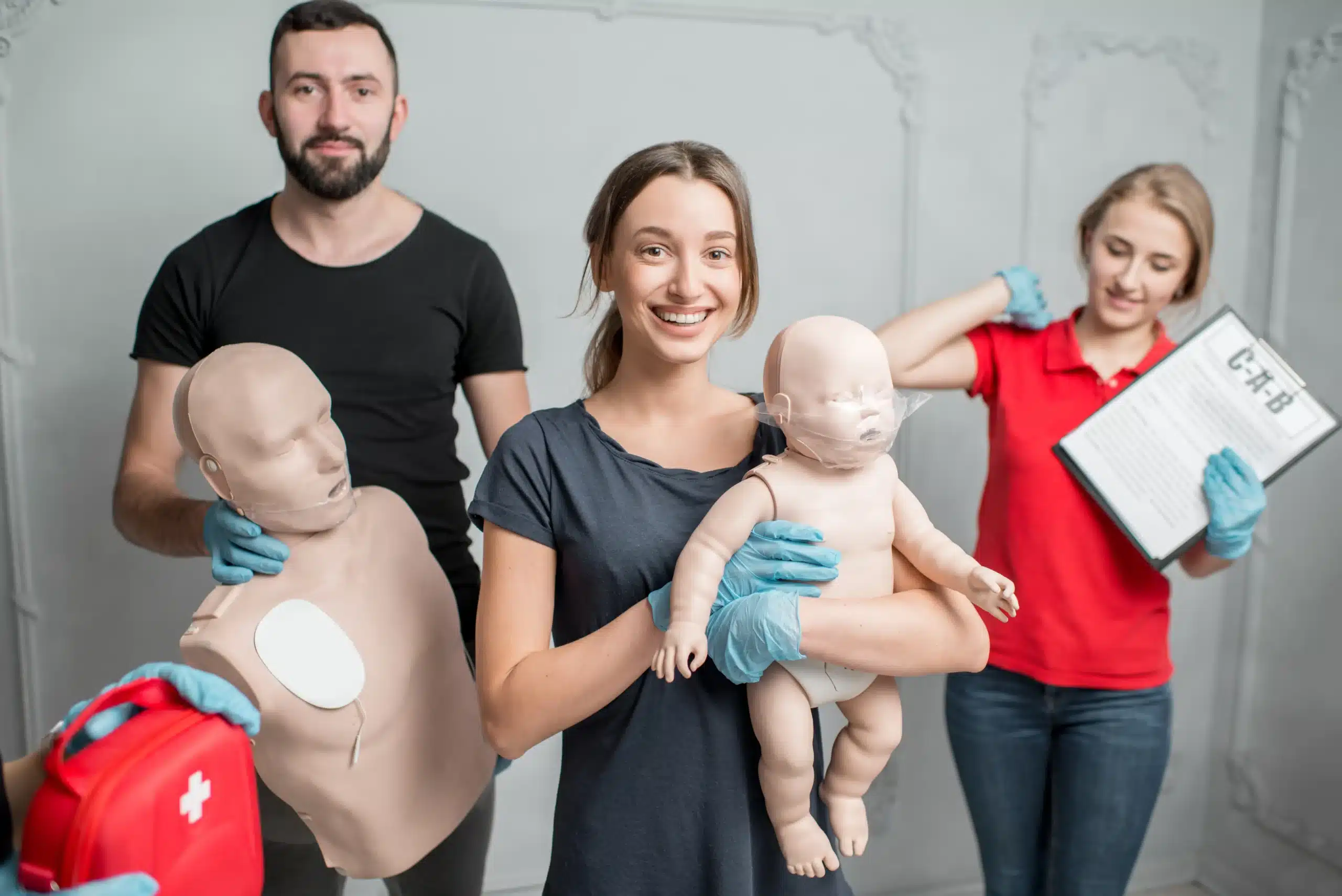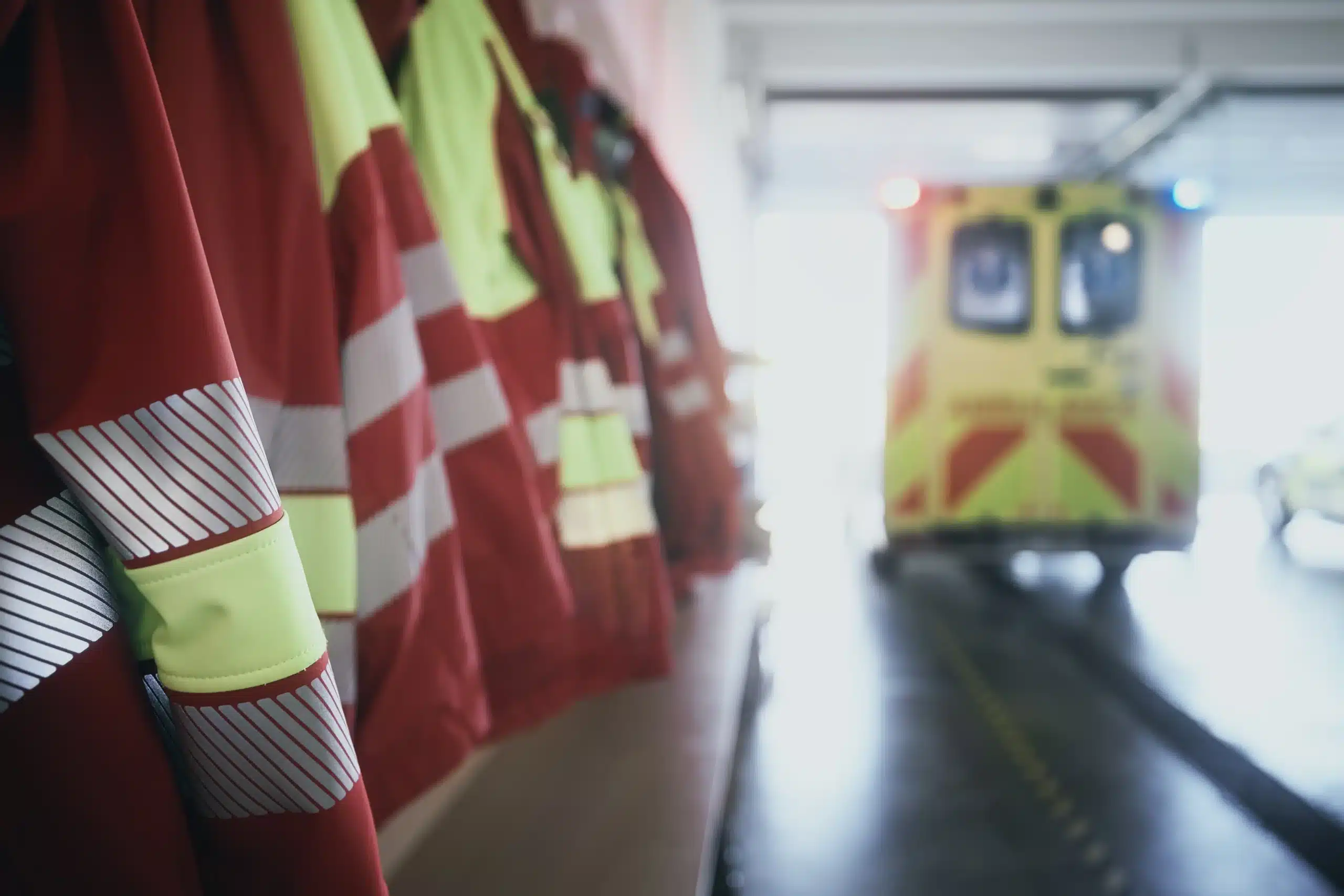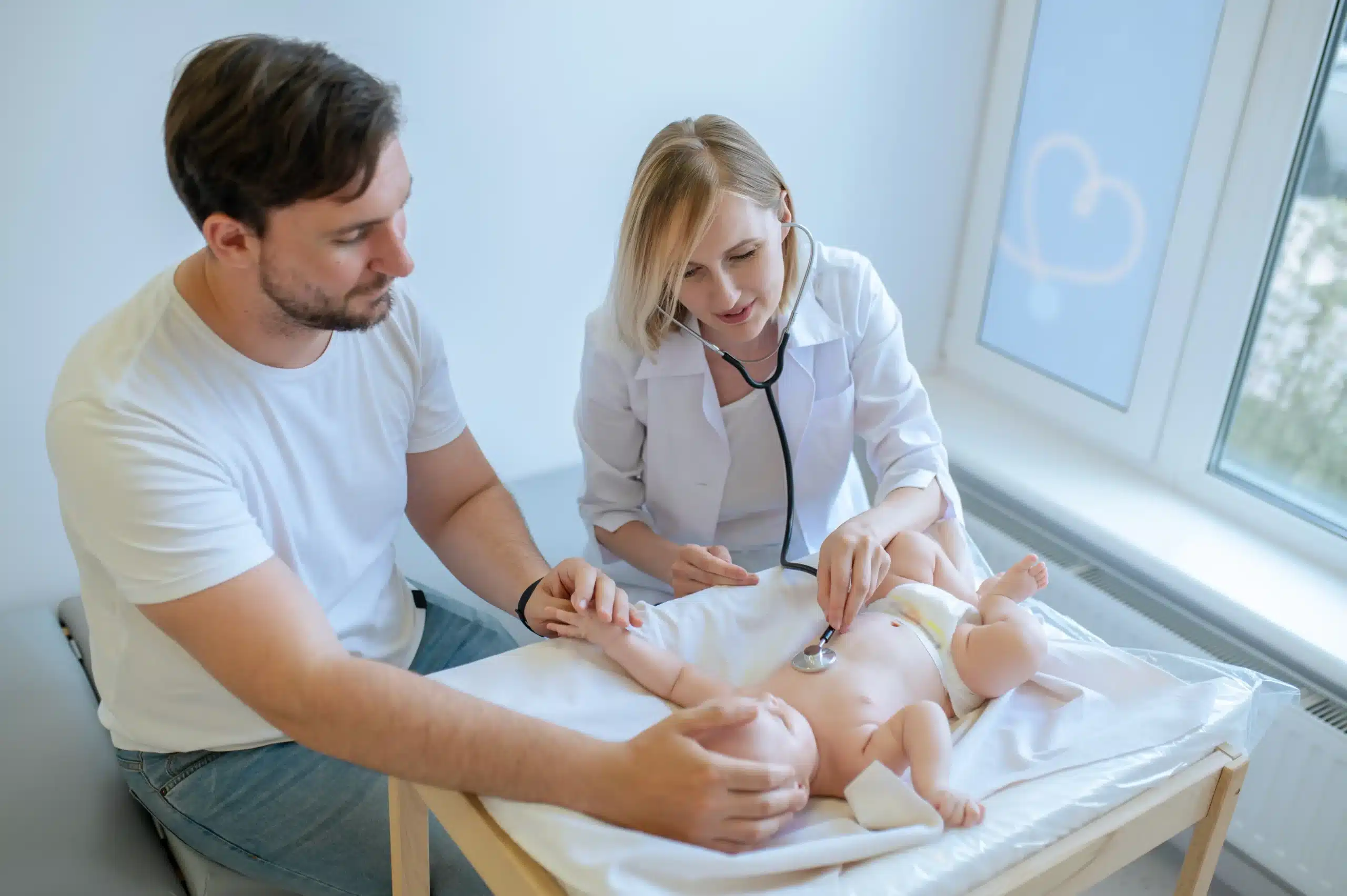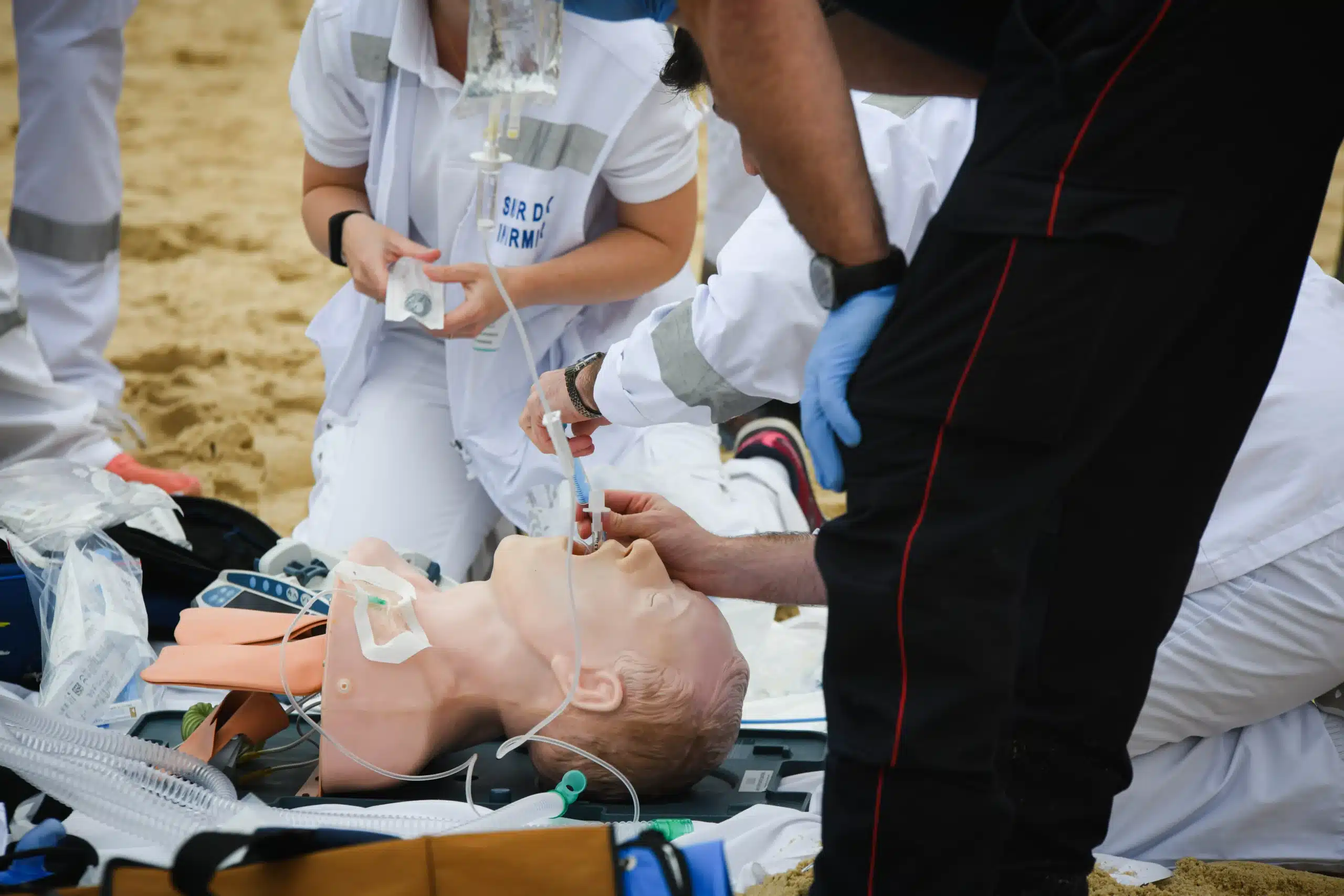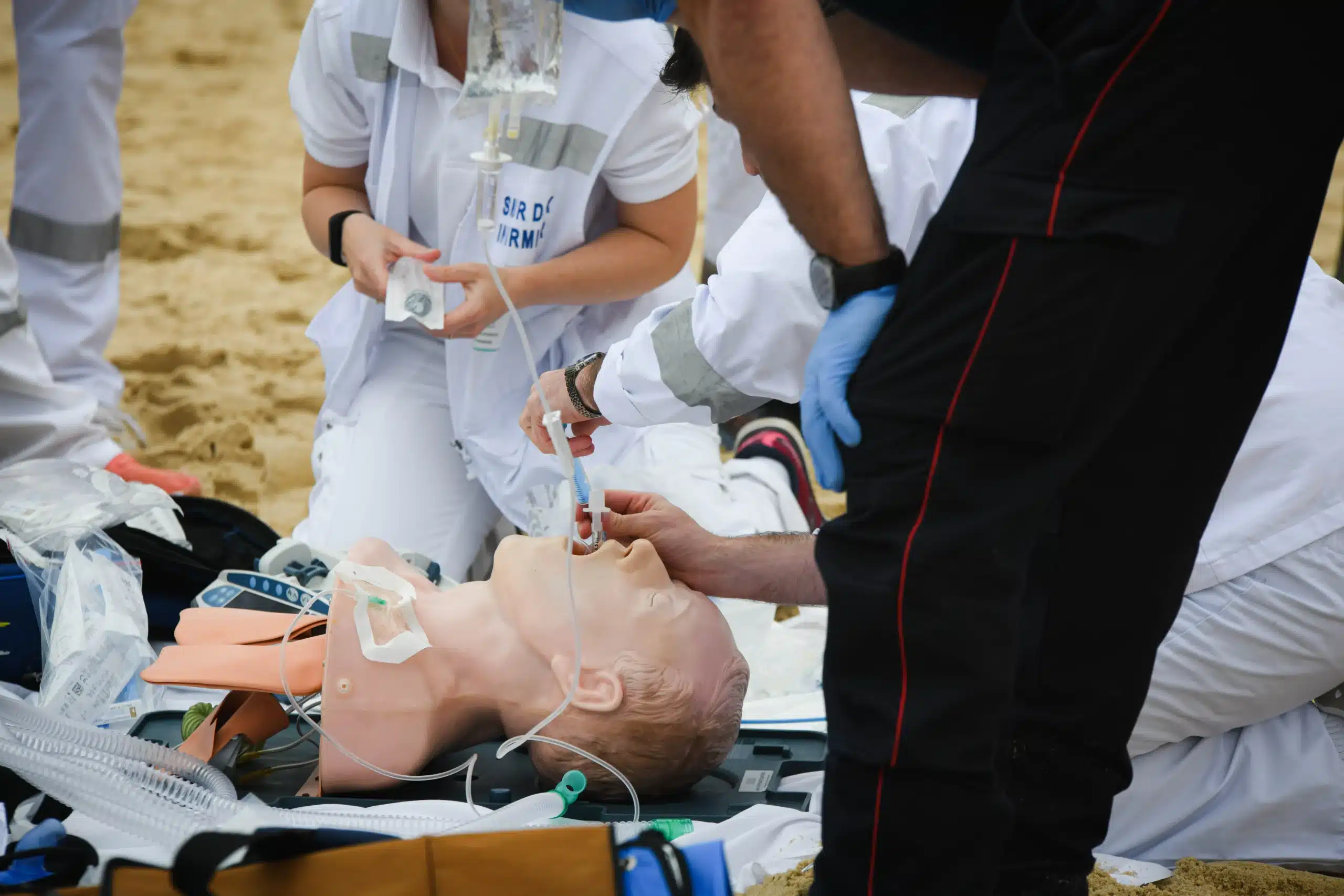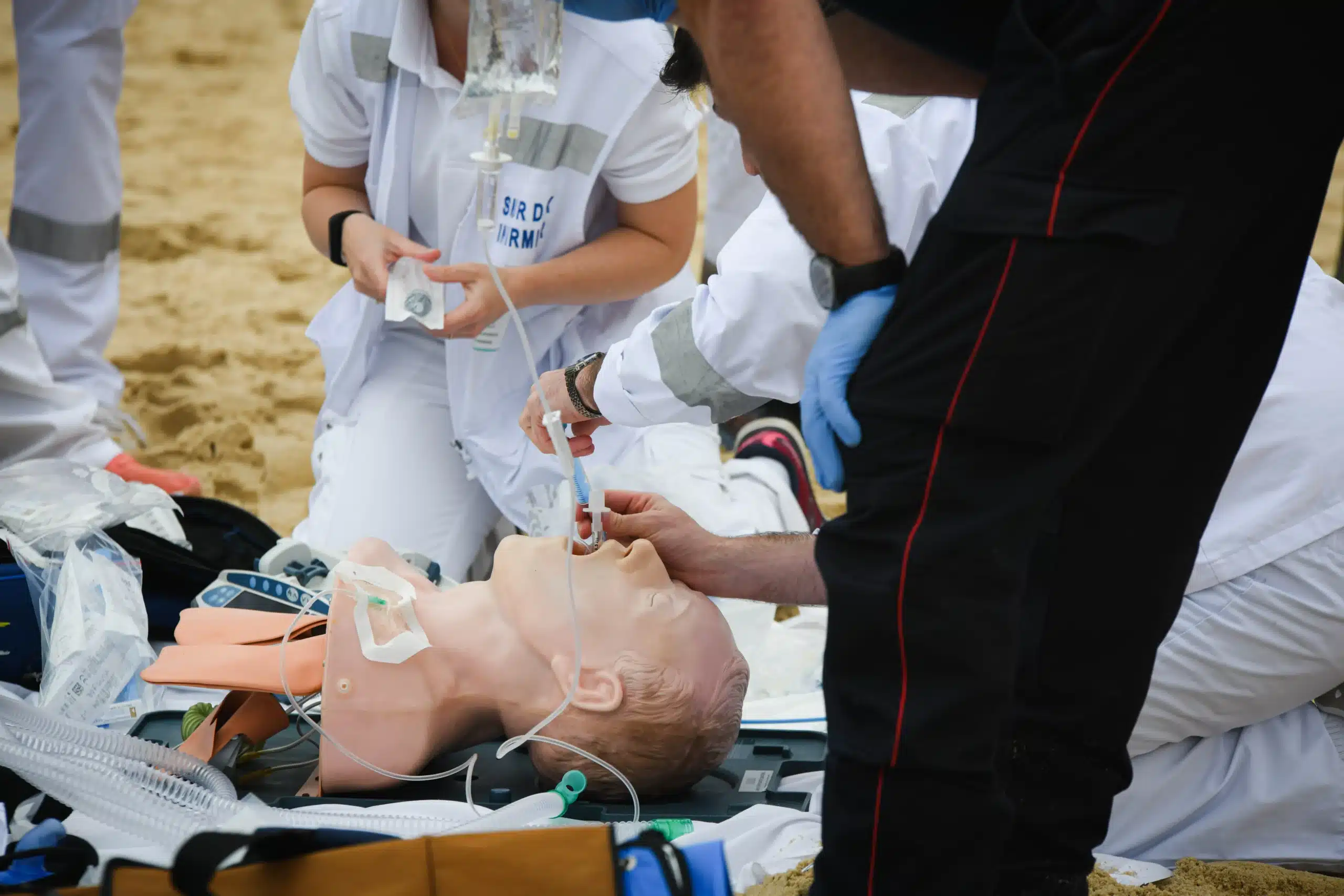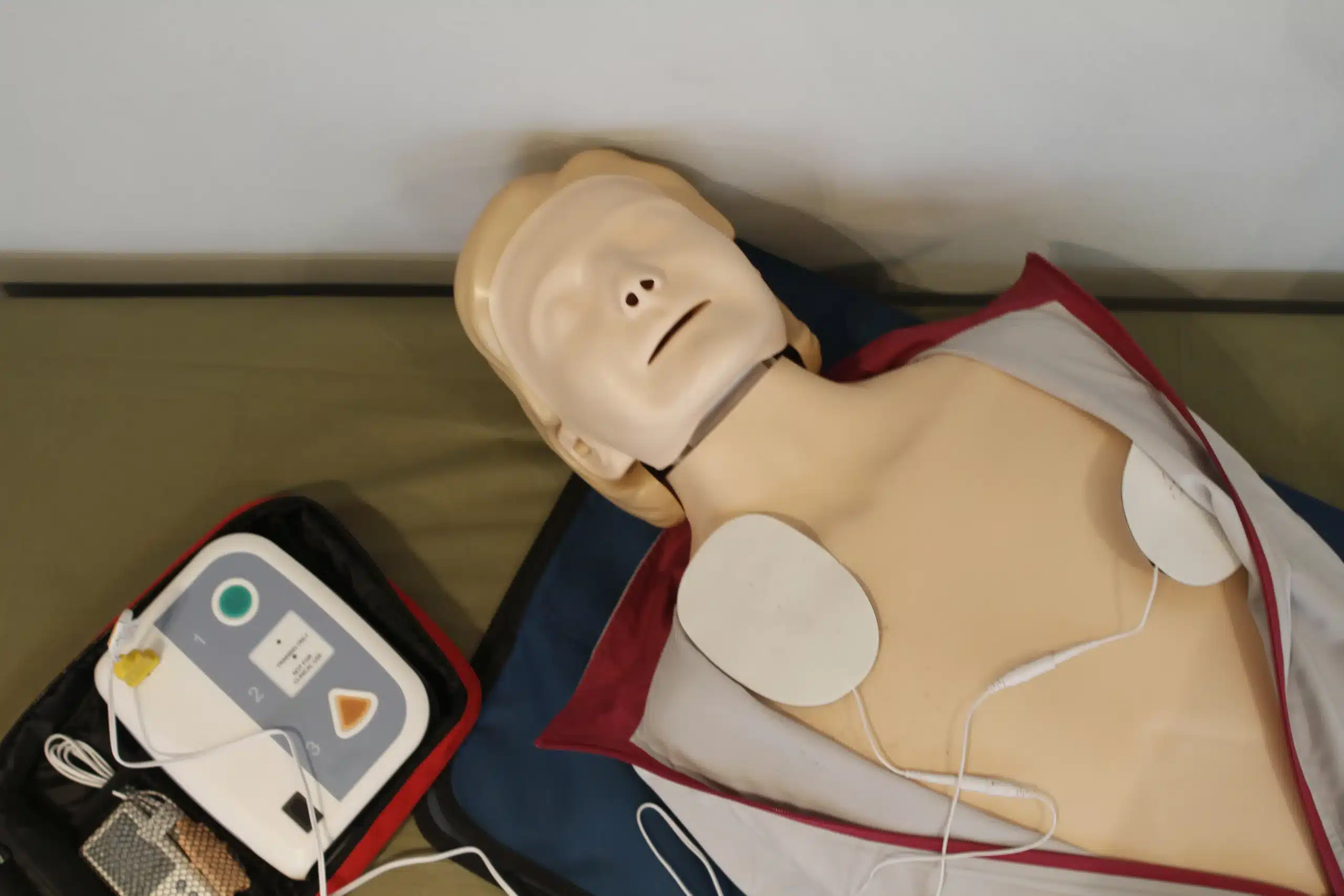Working with children in healthcare is incredibly rewarding, but it also comes with a unique set of responsibilities. When a child’s life is on the line, you need to be prepared to act quickly and confidently. That’s where Pediatric Advanced Life Support (PALS) training comes in. This specialized program equips healthcare professionals with the skills to manage pediatric emergencies effectively. If you’re a healthcare provider in Dublin, finding a high-quality PALS course is an investment in your career and the well-being of your young patients. This guide explores everything you need to know about pediatric advanced life support in Dublin, from course content and available training options to the long-term benefits of certification.
Key Takeaways
- PALS is essential for healthcare providers working with children: It provides the specialized training needed to confidently and effectively manage pediatric emergencies, ultimately improving patient outcomes.
- Choosing the right PALS course requires careful consideration: Evaluate factors like course content, instructor experience, flexibility, and cost to find the best fit for your learning style and schedule. Asking potential providers detailed questions will help you make an informed decision.
- Maintaining your PALS skills is an ongoing commitment: Stay up-to-date with the latest guidelines and best practices through continuing education and regular practice. This ensures you’re always prepared to deliver the highest quality care in pediatric emergencies.
What is PALS?
Pediatric Advanced Life Support (PALS) is a specialized training program that equips healthcare providers with the knowledge and skills to effectively manage pediatric emergencies. This course focuses on the specific needs of infants and children, recognizing that their physiology and responses to illness and injury differ significantly from adults. PALS emphasizes a systematic approach to assessment, intervention, and stabilization in life-threatening situations. It’s built upon the foundation of Basic Life Support (BLS) but delves deeper into the advanced techniques and critical thinking skills necessary for pediatric care. If you’re a healthcare professional working with young patients, understanding the core principles of PALS is essential for providing the highest quality care.
Key PALS Skills
PALS training covers a wide range of skills essential for managing pediatric emergencies. These include rapid assessment and intervention for respiratory distress and failure, shock, and cardiopulmonary arrest. Participants learn to perform high-quality CPR, including chest compressions at a rate of 100-120 per minute and deliver effective rescue breaths. The program also emphasizes the importance of early defibrillation using automated external defibrillators (AEDs) or manual defibrillators, with appropriate dosage adjustments based on the child’s weight. Beyond these core skills, PALS addresses advanced airway management techniques, the recognition and treatment of specific pediatric conditions, and post-resuscitation care. This comprehensive approach ensures healthcare providers are well-prepared to handle a variety of critical situations.
Why PALS Matters for Dublin Healthcare Professionals
For healthcare providers in Dublin working with infants and children, PALS certification is invaluable. It empowers them to confidently respond to emergencies, potentially saving young lives. By emphasizing early recognition and intervention, PALS helps improve patient outcomes and minimize the long-term effects of critical illnesses and injuries. Certification demonstrates a commitment to providing high-quality pediatric care and is often a requirement for employment in many healthcare settings. If you’re a Dublin healthcare professional seeking to enhance your skills and provide the best possible care for your young patients, consider pursuing PALS training.
Best PALS Training in Dublin
Finding the right Pediatric Advanced Life Support (PALS) course can feel overwhelming, but several reputable organizations in Dublin offer excellent training. Here are a few options to consider:
Safety Training Seminars
While Safety Training Seminars focuses on CPR instruction in Pleasanton, California, they offer a range of American Heart Association courses, including BLS certification, and serve as a good example of a private company’s approach to comprehensive training—something valuable in any PALS course. If you’re looking for PALS certification in Dublin, consider providers with a similar commitment to thorough education.
Irish Heart Foundation
The Irish Heart Foundation is a well-respected organization dedicated to combating heart disease and stroke. While they don’t directly offer PALS training, they are an excellent resource for information on heart health and related topics. Check their website for potential partnerships with organizations that provide PALS certification.
Dublin Fire Brigade Training Centre
For those seeking hands-on, practical training, the Dublin Fire Brigade Training Centre could be a good fit. While their primary focus is training firefighters, their expertise in emergency response makes them a potential resource for advanced life support training. A quick Google search can often uncover information on local fire brigade training programs. Reach out to them directly to inquire about PALS courses or other relevant programs.
St. John Ambulance Ireland
St. John Ambulance Ireland is a trusted provider of first aid and emergency response training. They offer a range of courses. Check their training page for current offerings or contact them directly to inquire about PALS courses.
Medicall
Medicall specializes in medical training, including PALS certification. Their focus on practical application and hands-on experience can be beneficial for healthcare professionals seeking to refine their skills. Visit their website for course details.
Code Blue
Code Blue offers a dedicated PALS course designed for healthcare professionals managing pediatric emergencies. Their two-day program covers essential skills for handling critical situations. Check their site for the latest information on course dates and registration.
PALS Course Content & Structure
PALS courses equip healthcare providers with the knowledge and skills to manage pediatric emergencies. The curriculum blends theoretical learning with hands-on practice, ensuring participants gain practical experience alongside essential medical knowledge.
Core Curriculum
The core PALS curriculum emphasizes a systematic approach to pediatric assessment, resuscitation, and stabilization. It covers essential topics such as respiratory emergencies, shock, and cardiopulmonary arrest. The PALS Provider Course focuses on improving outcomes for pediatric patients by preparing healthcare providers to recognize and intervene in these critical situations. PALS training also addresses age-specific considerations, ensuring providers understand the unique aspects of pediatric anatomy and physiology, and the appropriate interventions for children.
Hands-on Practice & Simulations
PALS courses incorporate hands-on practice and simulations to reinforce learning and build confidence. These sessions cover essential skills such as pediatric assessment, basic life support, AED use, airway management, and the recognition and management of cardiac arrest. PALS training is essential for any healthcare professional working with children. This practical experience is invaluable in preparing for real-world pediatric emergencies.
Blended Learning Options
Many PALS courses offer blended learning options, combining online learning with in-person skills practice. This flexible approach allows participants to learn at their own pace through online modules and then practice essential techniques in person. HeartCode PALS is one example of a blended learning program. This blended format ensures participants are fully prepared for real-world pediatric emergencies.
PALS Course Costs & Value in Dublin
Understanding the cost and value of Pediatric Advanced Life Support (PALS) training is essential for making informed decisions about your professional development. This section breaks down average course fees, potential discounts, and the long-term return on investment for healthcare professionals in Dublin.
Average Course Fees
PALS course fees in Dublin vary depending on the provider, course format (online or blended learning), and included materials. A standard HeartCode PALS course, combining online learning with an in-person skills session, typically costs around $290 at Pleasanton CPR Classes. For comparison, providers like Medicall may charge €380. Comparing pricing from different training centers is always a smart move.
Discounts & Promotions
Look for ways to save on PALS certification. Many training providers offer discounts for group registrations—a great option if you’re enrolling with colleagues. Pleasanton CPR Classes offers a low price guarantee and often runs promotions. Check directly with providers like Dublin CPR Classes for their current deals.
ROI for Healthcare Professionals
While the upfront cost of PALS certification matters, consider the long-term return on investment, especially if you work with children. PALS training gives you the skills to confidently handle pediatric emergencies. This expertise improves the quality of care you deliver and increases your value as a healthcare professional. Earning your PALS certification shows your dedication to providing excellent care for young patients, a valuable asset in any healthcare setting. Responding effectively in critical situations can significantly improve patient outcomes, making PALS a worthwhile investment in your career.
Get PALS Certified
So, you’re ready to pursue your PALS certification—fantastic! This section breaks down the steps to get certified and how to keep your certification current.
Certification Steps
Getting your PALS certification in Dublin typically involves choosing an accredited training provider and completing a comprehensive course. Several organizations offer PALS Provider courses, including the American Heart Association, often available through providers like Safety Training Seminars. These courses cover essential skills for recognizing and responding to pediatric emergencies, such as respiratory distress, shock, and cardiac arrest. Expect a mix of classroom instruction and hands-on practice to solidify your learning. Some providers, like Code Blue, offer a two-day PALS course with instructor-led demonstrations and practice sessions designed for healthcare professionals managing pediatric emergencies. Check with individual providers for their course schedules and registration information.
Renewal Requirements
Your PALS certification is valid for two years. To maintain your skills and stay up-to-date with the latest guidelines, renew your certification before it expires. Renewal usually involves a refresher course or an updated training program. After successfully completing the online portion and the in-person skills check, you’ll receive an AHA PALS Provider course completion card, verifying your training and readiness to handle pediatric emergencies. Staying current with your PALS certification ensures you’re equipped with the most current protocols and techniques for managing pediatric emergencies. For more information on PALS HeartCode and renewal options, visit the Pleasanton CPR Classes blog. Maintaining your certification isn’t just a requirement—it’s a commitment to providing the best possible care for your young patients.
Choose the Right PALS Course in Dublin
Finding the right Pediatric Advanced Life Support (PALS) course is crucial for any healthcare provider in Dublin. With several training centers available, it’s essential to consider key factors to ensure you receive high-quality instruction and achieve your certification goals.
Factors to Consider
Course Content and Structure: A comprehensive PALS course should align with the American Heart Association’s guidelines, covering essential topics such as respiratory emergencies, shock, and cardiopulmonary arrest in pediatric patients. Look for a program like the PALS Provider Course that emphasizes improving patient outcomes through evidence-based practices. The course structure should include a mix of lectures, demonstrations, and hands-on practice.
Instructor Qualifications: Experienced and certified instructors are key to a successful PALS course. Inquire about the instructors’ credentials and their experience with pediatric patients. A good instructor will effectively demonstrate skills, facilitate engaging discussions, and provide personalized feedback. For example, Code Blue highlights their combined instructor and DVD-led approach for skills sessions.
Flexibility and Accessibility: Consider your schedule and learning preferences when choosing a PALS course. Traditional classroom courses offer a structured learning environment, while blended learning options like HeartCode PALS provide online modules combined with in-person skills sessions. This blended learning approach allows you to learn at your own pace and fit the training into your busy schedule.
Cost and Value: While cost is a factor, prioritize the value you receive. Compare prices from different providers, but also consider the quality of instruction, course materials, and the certification you’ll receive. Dublin CPR Classes offers competitive pricing and potential group discounts.
Questions for Training Providers
Before enrolling in a PALS course, prepare questions to ask potential training providers. This will help you gather information and make an informed decision.
What is the course duration and format? Understanding the time commitment and learning format is crucial for planning. Ask about the total course hours, the balance of classroom versus online learning (if any), and the session schedule. Code Blue offers a program with multiple learning activities, combining instructor-led and DVD components.
What certification will I receive upon completion? Ensure the course provides a recognized certification, such as the American Heart Association PALS Provider card. This certification demonstrates your PALS competency and is often required for healthcare professionals. Pleasanton CPR Classes clarifies that their HeartCode PALS program offers an AHA PALS Provider card, equivalent to a traditional classroom course certification.
What support is available post-training? A reputable training provider should offer ongoing support, such as refresher materials or continuing education. This helps you maintain your PALS skills and stay current with the latest guidelines. Inquire about any available resources or support networks. Medicall emphasizes their course’s focus on developing the knowledge and skills of healthcare professionals to manage pediatric emergencies.
Prepare for Your PALS Course
Getting ready for your PALS course? A little prep work goes a long way. Here’s what you need to know to make the most of your training:
Pre-Course Study Materials
Most PALS courses require pre-course work. This typically involves an online component covering essential concepts and preparing you for the hands-on portion of the class. This pre-course work helps build a strong foundation so you can actively participate during the in-person training. Make sure to complete this important step before your class begins.
What to Bring
Your PALS course will involve a mix of instruction, demonstrations, and hands-on practice. PALS training covers a lot of ground, from pediatric assessments and basic life support to airway management and using an AED. Come prepared to learn and practice these essential skills. While your instructor will provide most of the equipment, it’s a good idea to bring a notebook and pen to jot down notes and any questions you may have. Comfortable clothing is also recommended, as you’ll be actively participating in simulations and practice scenarios.
Overcome PALS Challenges
PALS certification and practice come with their own set of hurdles. Understanding these challenges ahead of time helps you prepare and provide the best possible care.
Common Emergency Obstacles
One of the biggest challenges healthcare providers face is balancing demanding work schedules with the time commitment required for training. Finding a PALS course that fits your schedule is crucial. Look for providers like Safety Training Seminars that offer flexible scheduling options, including weekend and evening classes. This can make it easier to fit the training into your busy life. Another common obstacle is managing the emotional toll of pediatric emergencies. It’s important to acknowledge that these situations can be stressful and to develop healthy coping mechanisms. Resources like those offered by PALS St. Louis can provide valuable support and guidance in navigating the psychological challenges of pediatric CPR.
Effective Team Communication Strategies
In pediatric emergencies, clear communication is essential for positive outcomes. The AHA PALS program emphasizes effective teamwork and communication. Practicing clear communication strategies during simulations and training scenarios can significantly improve your performance in a real-life emergency. Focus on closed-loop communication, where each team member confirms they’ve received and understood instructions. Mastering essential PALS skills, such as proper airway management, timely chest compressions, and accurate medication dosages, combined with strong communication, will enhance your resuscitation skills and contribute to better patient outcomes. You can find more information on mastering these skills at American Health Training.
Maintain Your PALS Skills
After earning your PALS certification, staying sharp is key. PALS isn’t a “one and done” deal—it requires ongoing learning and practice to maintain those crucial skills. This section explores how you can keep your PALS knowledge fresh and your responses effective.
Continuing Education
Pediatric Advanced Life Support (PALS) training is essential for healthcare providers working with children. It gives you the tools to handle pediatric emergencies, focusing on the specific needs of young patients. Because children’s anatomy, physiology, and emergency care differ significantly from adults, PALS training ensures you’re prepared for these unique situations. Continuing education courses and refreshers help you stay up-to-date on the latest guidelines and best practices in pediatric care. Staying informed about evolving treatment protocols is crucial for providing the highest quality care. You can find valuable resources and updates through organizations like the American Heart Association.
Practice Resources
Regular practice is just as important as continuing education. Hands-on training and simulations are invaluable for reinforcing your skills and building confidence. Many resources offer opportunities to practice PALS techniques in a safe and controlled environment. Look for courses that incorporate case-based learning and simulations, like those offered by Medicall, to solidify your understanding and improve your response time in real-world scenarios. Regularly reviewing PALS protocols and algorithms can also help you stay prepared. Consider joining online communities or forums to discuss challenging cases and share best practices with other PALS-certified professionals.
PALS in Dublin: Make an Informed Choice
Key Considerations for Healthcare Professionals
Pediatric Advanced Life Support (PALS) training is essential for any healthcare provider working with children. It gives you the skills to respond effectively to pediatric emergencies. PALS courses focus on the specific needs of young patients, covering pediatric anatomy, physiology, and emergency interventions tailored to infants and children. This specialized knowledge is crucial because children’s bodies react differently to illness and injury than adults do. Understanding these key differences guides airway management techniques and affects medication dosages, both critical in emergency situations. PALS certification demonstrates a commitment to providing the highest quality care for your young patients.
Next Steps to Enroll
Ready to enhance your pediatric emergency care skills? Safety Training Seminars provides comprehensive PALS training, focusing on improving outcomes for pediatric patients. Our courses prepare healthcare providers to recognize and intervene in critical situations like respiratory emergencies, shock, and cardiopulmonary arrest. You can also explore options through organizations like Medicall, which offers a blended learning approach with online and in-person components, and Code Blue, known for its hands-on training and simulations. Find the PALS course that best fits your needs and schedule. Investing in PALS certification is an investment in the health and well-being of the children in your care.
Related Articles
- PALS Certification in San Ramon: Your Complete Guide – Pleasanton CPR Classes
- PALS HeartCode in San Ramon: Everything You Need to Know – Pleasanton CPR Classes
- HeartCode PALS Dublin: A Certification Guide
- ACLS Certification in Dublin: A Complete Guide
- BLS for Healthcare Providers in Dublin: A Complete Guide – Pleasanton CPR Classes
Frequently Asked Questions
Why is PALS certification important, especially in Dublin?
PALS certification is crucial for healthcare providers in Dublin who work with infants and children because it equips them with specialized knowledge and skills to effectively manage pediatric emergencies. Children have unique physiological responses to illness and injury, requiring different approaches than adult patients. PALS training addresses these differences, enabling healthcare professionals to provide the best possible care in critical situations, potentially saving young lives. It also demonstrates a commitment to high-quality pediatric care, which can be a significant advantage in Dublin’s competitive healthcare environment.
What topics are covered in a typical PALS course?
PALS courses cover a wide range of topics essential for managing pediatric emergencies. The curriculum typically includes a systematic approach to pediatric assessment, resuscitation, and stabilization, with a focus on conditions like respiratory distress and failure, shock, and cardiopulmonary arrest. Participants learn advanced techniques in CPR, defibrillation, airway management, and medication administration specifically tailored to pediatric patients. The course also emphasizes the importance of teamwork, communication, and post-resuscitation care.
How much does a PALS course in Dublin usually cost, and are there any discounts available?
The cost of a PALS course in Dublin can vary depending on the training provider, the course format (traditional or blended learning), and included materials. It’s always a good idea to compare pricing from different providers. Many training centers offer discounts for group registrations, making it a more affordable option if you’re enrolling with colleagues. Some providers also offer periodic promotions or discounts for early registration. Be sure to inquire about potential cost savings when you contact different training centers.
What are the different learning formats available for PALS certification?
PALS certification courses are often available in several formats to accommodate different learning styles and schedules. Traditional classroom courses provide a structured learning environment with in-person instruction and hands-on practice. Blended learning options combine online modules with in-person skills sessions, offering more flexibility for busy professionals. The online component allows you to learn at your own pace, while the in-person sessions provide essential hands-on training and interaction with instructors and peers.
How can I maintain my PALS skills after becoming certified?
Maintaining your PALS skills after certification is essential for ensuring you’re always prepared to respond effectively in a pediatric emergency. Continuing education courses and refresher programs are available to keep you up-to-date with the latest guidelines and best practices. Regularly practicing PALS techniques through simulations and case studies is also crucial for reinforcing your skills and building confidence. Staying active in online communities or forums related to PALS can provide valuable opportunities to discuss challenging cases and learn from other experienced professionals.
